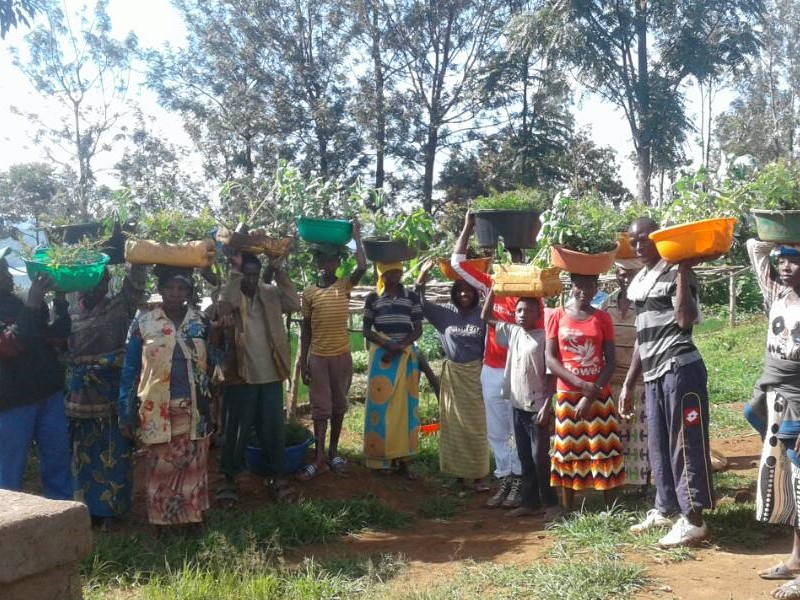ABOUT RDIS
The Rural Development Interdiocesan Service (RDIS) with registration No. 13/RGB/NGO/2015 is an organization for promoting sustainable development in four dioceses of the Anglican Church of Rwanda: Butare, Cyangugu, Kigeme and Shyogwe. We do this by mobilizing the local church members to be involved in developing their local community, and so lifting themselves out of poverty.
The project’s coordination office is currently based in Shyogwe Diocese a few kilometers from Gitarama town in central Rwanda. RDIS’ activities are concentrated in the centre and the south-western part of the country where the four dioceses are located, serving nearly half of the Rwandan population. S.a. Organisational structure.
The project can be traced back to 1991 when three other dioceses were carved out of the then Butare Diocese from which the Rural Development Service, which had started in the 1960s, became an Inter-Diocesan Service, currently called RDIS.
The activities were disrupted by the 1994 genocide which caused massive destruction on RDIS’ project, taking the lives of many people including the then project coordinator and leaving behind formidable challenges: nearly half a million orphans, 1 in 4 women being widowed, and poverty being increased in many families.
The project operations were re-launched in 1995 following a meeting by the dioceses’ management under the present name of Rural Development Inter-Diocesan Service and a team of development workers started working from scratch.
Our Vision: A Holy Soul in a Healthy Body.
Our Mission: To safeguard environment, increase the production aiming at sustainable and holistic development
Our Values: Excellent Service, Transparency, Accountability, and Partnership.
A list of programmes and projects that we are currently implementing or we have successfully implemented in the past:
- Carbon Credits for Emission Reduction (CCER) project:
The goal of this project is to improve the living standards of households and to reduce the strain on natural resources through the distribution of Improved Cook Stoves (ICS) and Ceramic Water
Filters (CWF). - Church and Community Transformation:
Church and Community Transformation(CMP) for poverty Alleviation. RDIS is involved in capacity building for resource mobilization and utilization. The goal of the project is to prepare Church and community leaders for holistic development. - Environmental Conservation:
Environmental Conservation in Western Province of Rwanda through seedling’s production for food diet improvement, financial gain and contribute to the reduction of global warming via tree planting. - Projects for Poverty Eradication by mobilizing the villagers to address the following issues through capacity building and training as well as practical support: Modern Agriculture, Savings Cooperatives, Income Generation, Water & Sanitation and Environmental Protection.
- Capacity Building and Development:
RDIS works with the local church and community to bring about social and economic development. We ensure that communities are holistically and sustainably transformed by means of the scarce resources available in their midst. In the journey towards transformation, we help local church and community members to change their mindset, thinking and working practices. Through the work of local churches and denominations, we provide information, knowledge and skills that help people to overcome material and spiritual poverty. In this process, we mobilize the church and community and encourage the people to positively change their living conditions working together in Self-Help Groups (SHG) - Crop promotion and transformation:
The global population is growing, and therefore food production will have to increase to meet the demands of a booming population. Looking ahead, few issues will be more important to the world and the world’s fastest growing markets than food and agriculture. And thus Sustainable agriculture is a tremendous opportunity for RDIS to make a difference across a range of issues. - Water sanitation and hygiene:
Major program activities of RDIS in this field is improving and expanding access to water, hygiene and sanitation services, but also empowering Local communities to support, provide, and manage their water supply and sanitation services and meet their WASH related needs.
